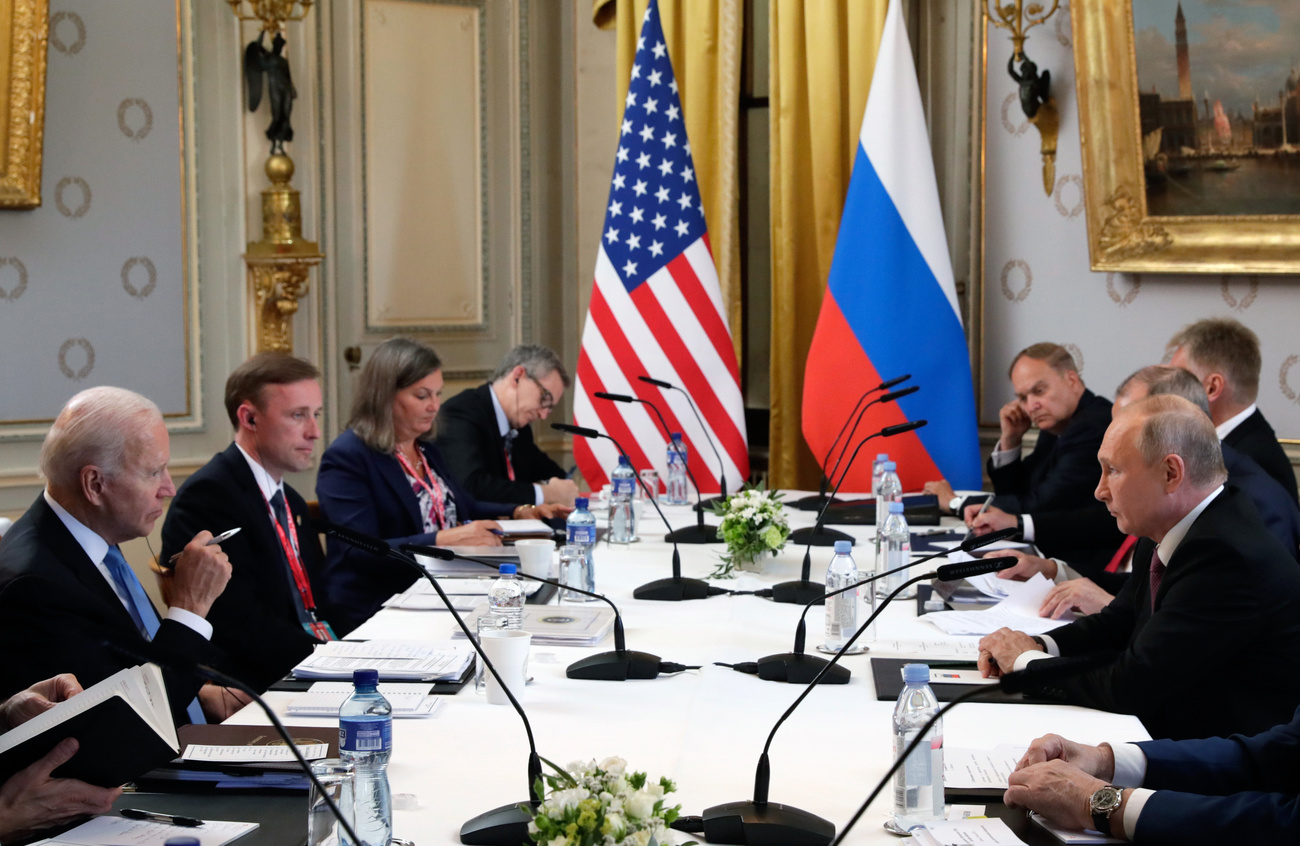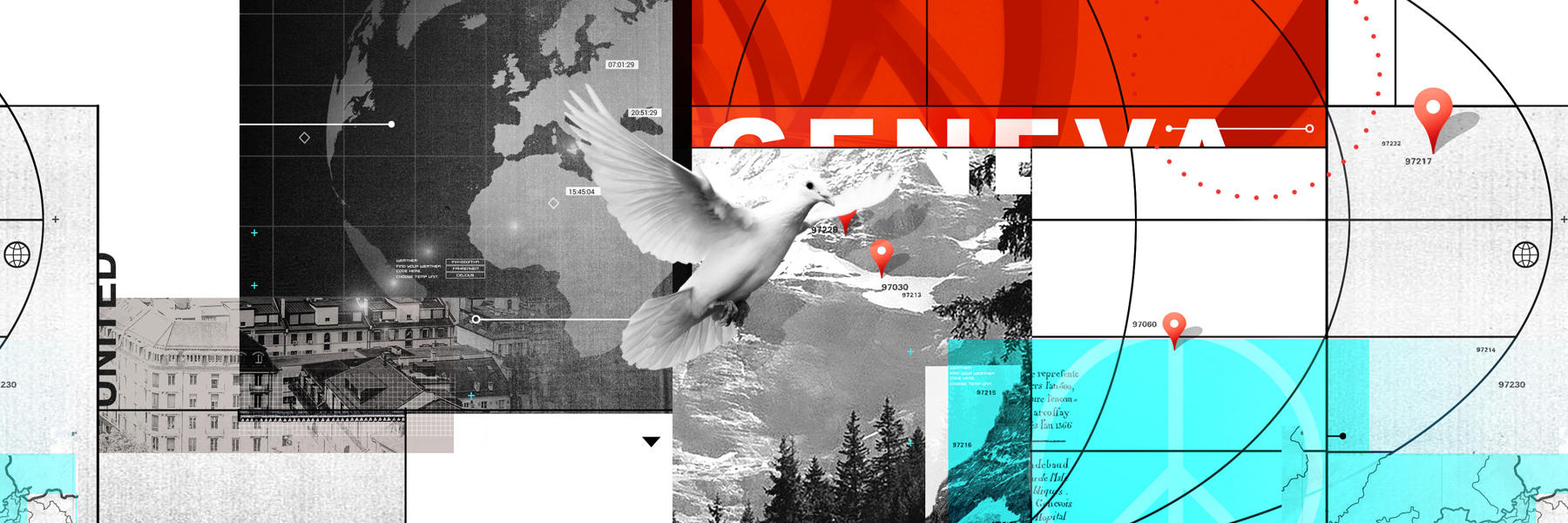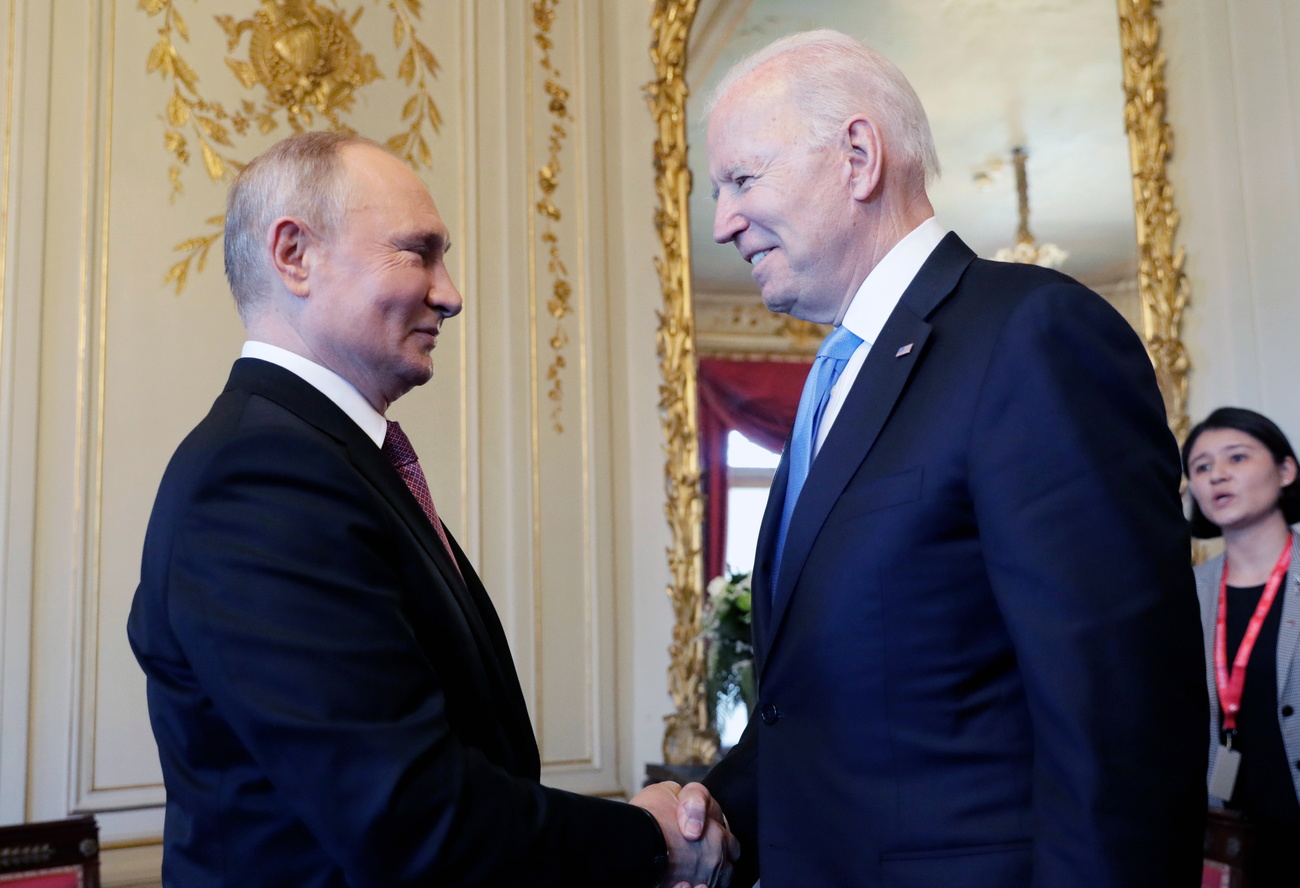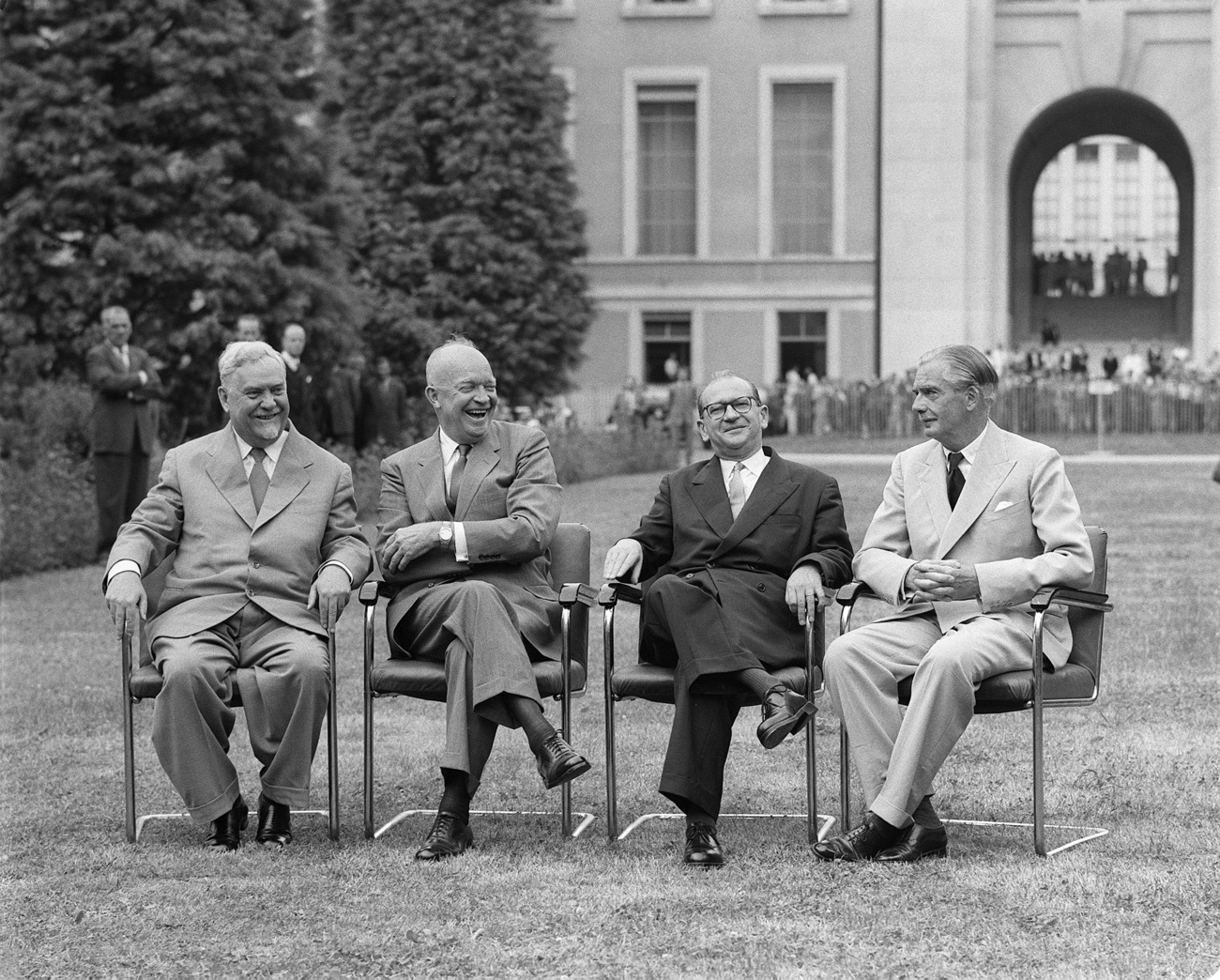
Putin and Biden wrap up talks in Geneva

The Russian and US Presidents said talks in Geneva were pragmatic and constructive. Some diplomatic breakthroughs, including a reinstatement of ambassadors, were announced.
“I think there was no hostility. Quite the contrary,” said Putin, who was the first of the two leaders to speak to press after the meeting.
Emerging a little earlier than expected after less than four hours of talks in Geneva, Putin said both sides had demonstrated a “willingness to understand one another”.
At a separate news briefing afterwards, Biden meanwhile said the talks had been carried out in a “positive, non-hyperbolic” tone, although he echoed Putin in stressing there was no friendship or trust involved, rather “mutual self-interest”.
As for concrete breakthroughs, Putin confirmed that the US Ambassador to Moscow and the Russian Ambassador to Washington would reassume their respective roles, after both had been recalled earlier this year due to diplomatic tensions.

More
The changing face of International Geneva
Putin also announced that with the two powers sharing a responsibility for nuclear stability, they had agreed to launch arms control talks to build on the New START treaty, a cornerstone of global arms control.
The Russian President also added that he and Biden had agreed to “begin consultations” on cybersecurity, although he dismissed US suggestions that unidentified Russians are responsible for a series of cyber-attacks in the United States.
Biden, for his part, said he had warned Putin that “critical infrastructure [energy sector, water systems] should be off limits” for such cyber-attacks, and insinuated that carrying out such actions “diminished Russia’s standing on the world stage”.
Similarly, after a forceful defense of human rights, Biden said it would be “devastating” for Russia’s credibility if opposition figurehead Alexei Navalny, currently jailed, were to die in prison.
For his part, Putin said Navalny had ignored the law and had known what would happen if he returned to Russia from Germany, where he had received treatment for an attempt inside Russia to kill him with poison.
Swiss summit
Relations between Moscow and Washington have been deteriorating for some time, notably after Russia’s 2014 annexation of Crimea from Ukraine, its 2015 intervention in Syria and US charges – denied by Moscow – of meddling in the 2016 American elections.
They sank further in March when Biden described Putin as a “killer”, prompting Russia to recall Antonov from Washington for consultations. The US recalled its ambassador in April.
On Wednesday, however, Putin described Biden as an “experienced statesman,” and said he had been satisfied by Biden’s explanation of the “killer” remark.
Biden echoed this at his press conference, saying that the talks were “not about trust”, but rather about “self-interest, and the verification of self-interest”.
Wednesday’s summit was the first meeting between US and Russian leaders since Putin met Donald Trump in Helsinki in 2018.

More
Biden-Putin in Geneva: looking for common ground
Logistics and security
Putin flew into Geneva on Wednesday at around midday. Biden had arrived on Tuesday, and held talks with Swiss President Parmelin and Foreign Minister Ignazio Cassis. The Swiss pair also met Putin on Wednesday evening.
The summit took place at an 18th century villa in the La Grange park overlooking Lake Geneva. Security was tight with much of Geneva city centre blocked off and the summit perimeter under heavy police guard. A total of around 4,000 police officers, soldiers and other security forces were deployed in Geneva. Around 3,000 journalists also attended.

More
US-Russia summits then and now: High tensions, mixed results
Wednesday’s talks between the two presidents evoked vivid memories of the 1985 Geneva summit, where Cold War rivals Ronald Reagan and Mikhail Gorbachev met for the very first time.

In compliance with the JTI standards
More: SWI swissinfo.ch certified by the Journalism Trust Initiative




























You can find an overview of ongoing debates with our journalists here . Please join us!
If you want to start a conversation about a topic raised in this article or want to report factual errors, email us at english@swissinfo.ch.